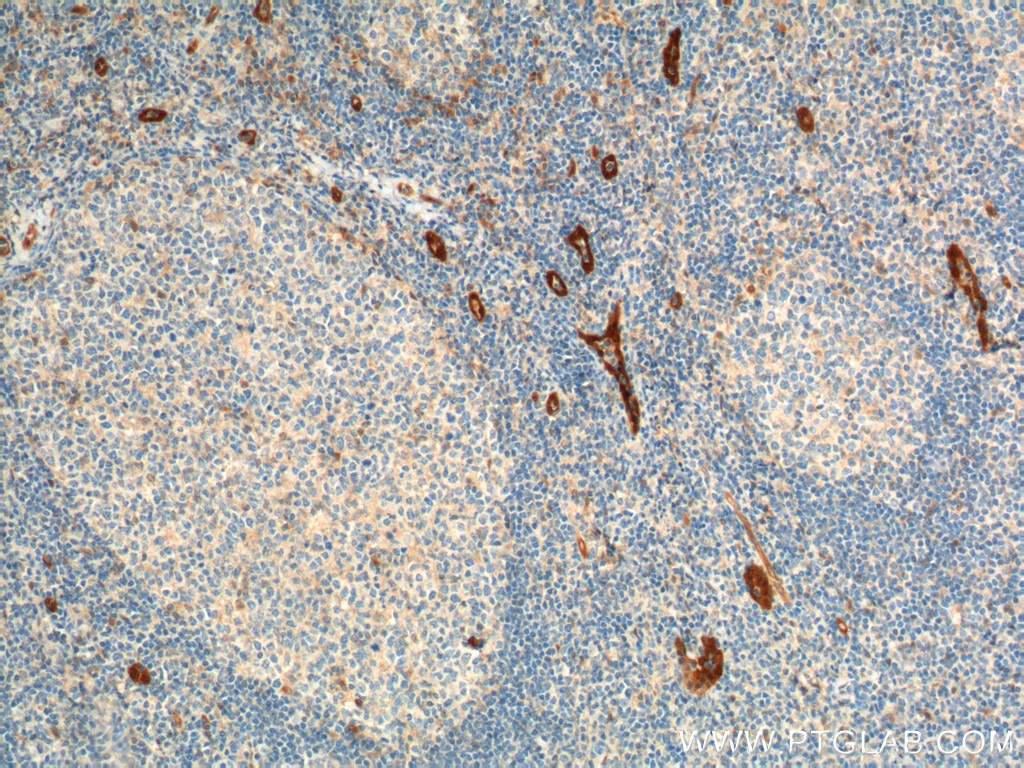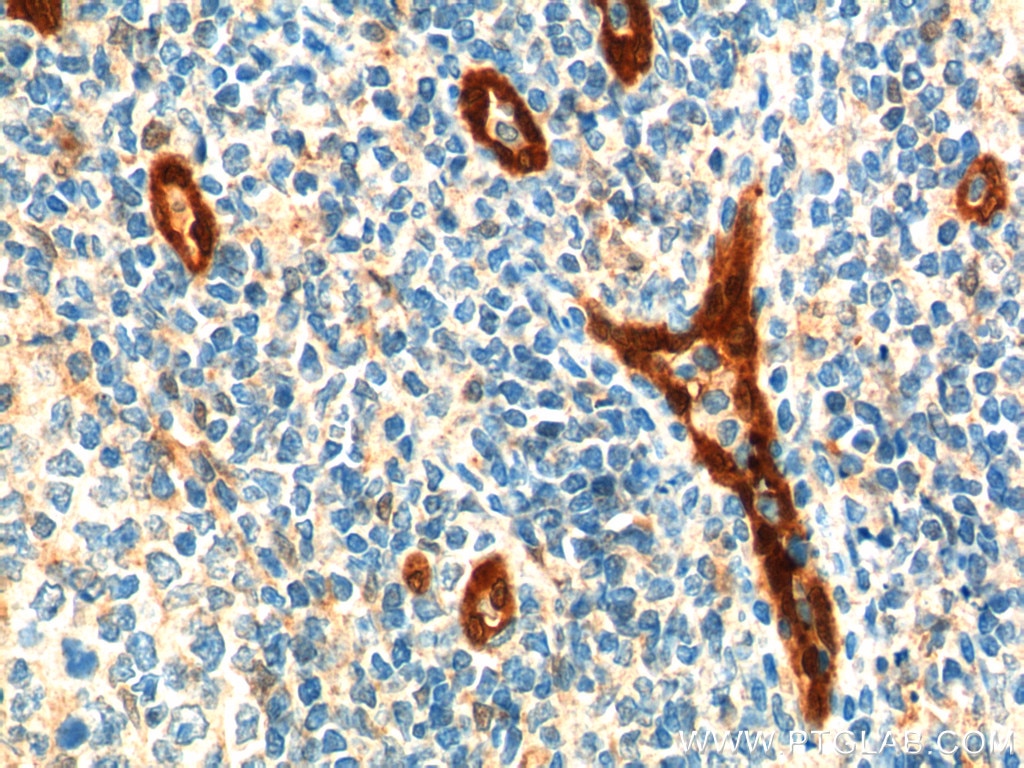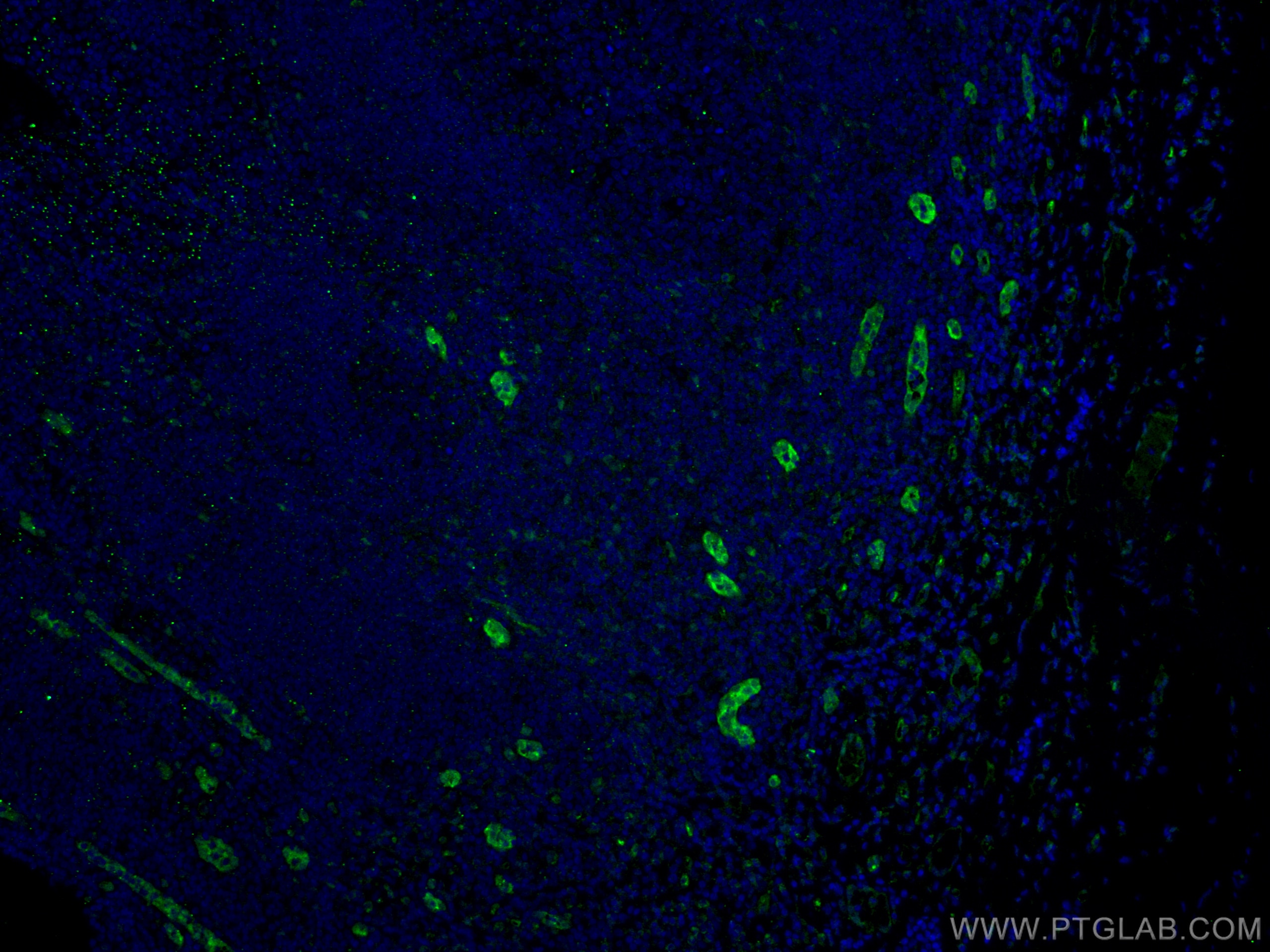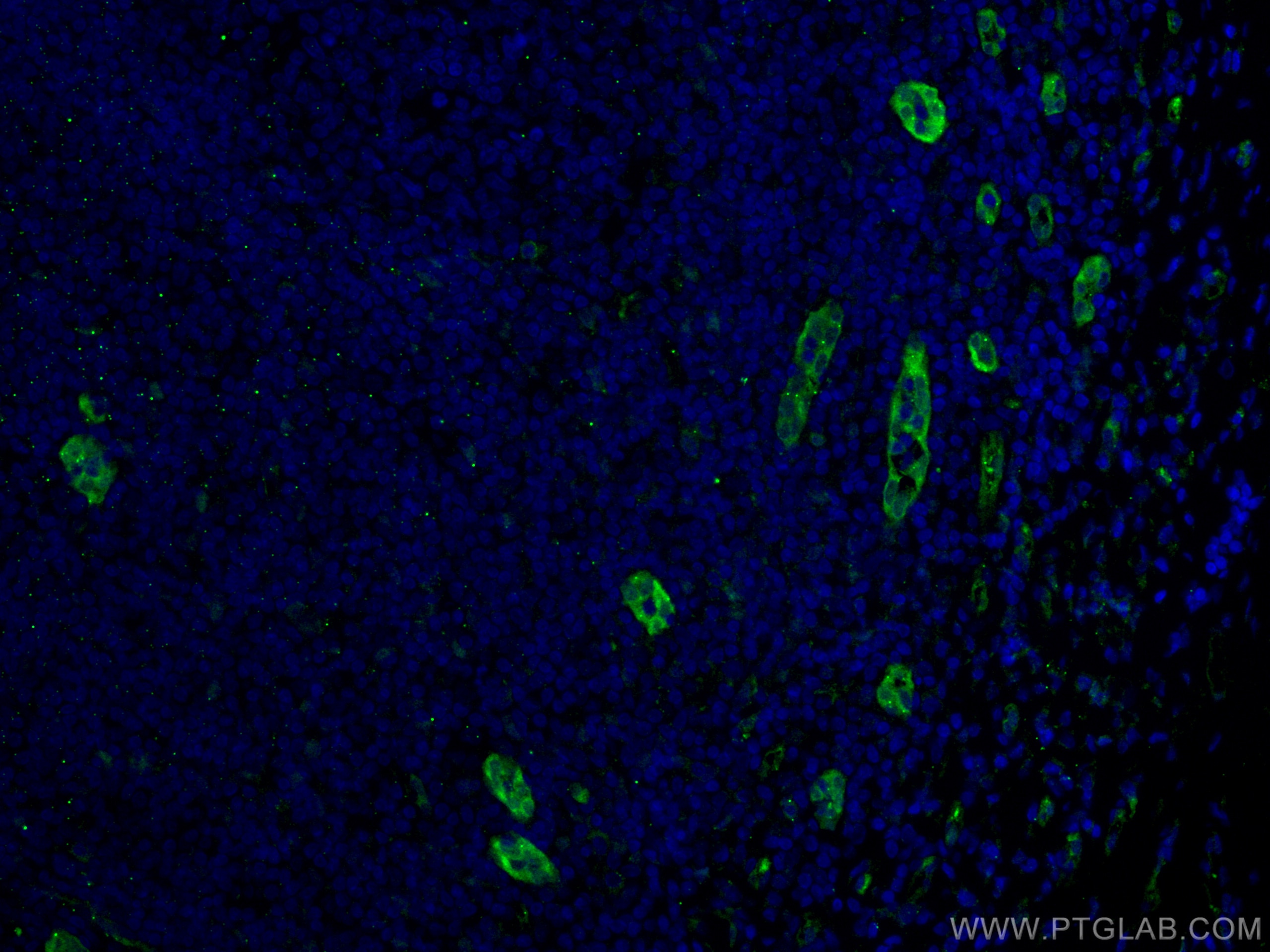Validation Data Gallery
Tested Applications
| Positive IHC detected in | human tonsillitis tissue Note: suggested antigen retrieval with TE buffer pH 9.0; (*) Alternatively, antigen retrieval may be performed with citrate buffer pH 6.0 |
| Positive IF-P detected in | human tonsillitis tissue |
Recommended dilution
| Application | Dilution |
|---|---|
| Immunohistochemistry (IHC) | IHC : 1:20-1:200 |
| Immunofluorescence (IF)-P | IF-P : 1:200-1:800 |
| It is recommended that this reagent should be titrated in each testing system to obtain optimal results. | |
| Sample-dependent, Check data in validation data gallery. | |
Product Information
60046-1-Ig targets ACKR2 in IHC, IF-P, ELISA applications and shows reactivity with human samples.
| Tested Reactivity | human |
| Host / Isotype | Mouse / IgG1 |
| Class | Monoclonal |
| Type | Antibody |
| Immunogen | ACKR2 fusion protein Ag1941 相同性解析による交差性が予測される生物種 |
| Full Name | chemokine binding protein 2 |
| Calculated molecular weight | 43 kDa |
| GenBank accession number | BC008816 |
| Gene Symbol | ACKR2 |
| Gene ID (NCBI) | 1238 |
| RRID | AB_2071883 |
| Conjugate | Unconjugated |
| Form | Liquid |
| Purification Method | Protein A purification |
| UNIPROT ID | O00590 |
| Storage Buffer | PBS with 0.02% sodium azide and 50% glycerol , pH 7.3 |
| Storage Conditions | Store at -20°C. Stable for one year after shipment. Aliquoting is unnecessary for -20oC storage. |
Background Information
ACKR2, also named as CCBP2 or chemokine receptor D6, is a heptahelical membrane protein expressed by lymphatic endothelial cells, binding with high affinity to multiple proinflammatory CC chemokines.
Protocols
| Product Specific Protocols | |
|---|---|
| IHC protocol for ACKR2 antibody 60046-1-Ig | Download protocol |
| IF protocol for ACKR2 antibody 60046-1-Ig | Download protocol |
| Standard Protocols | |
|---|---|
| Click here to view our Standard Protocols |



